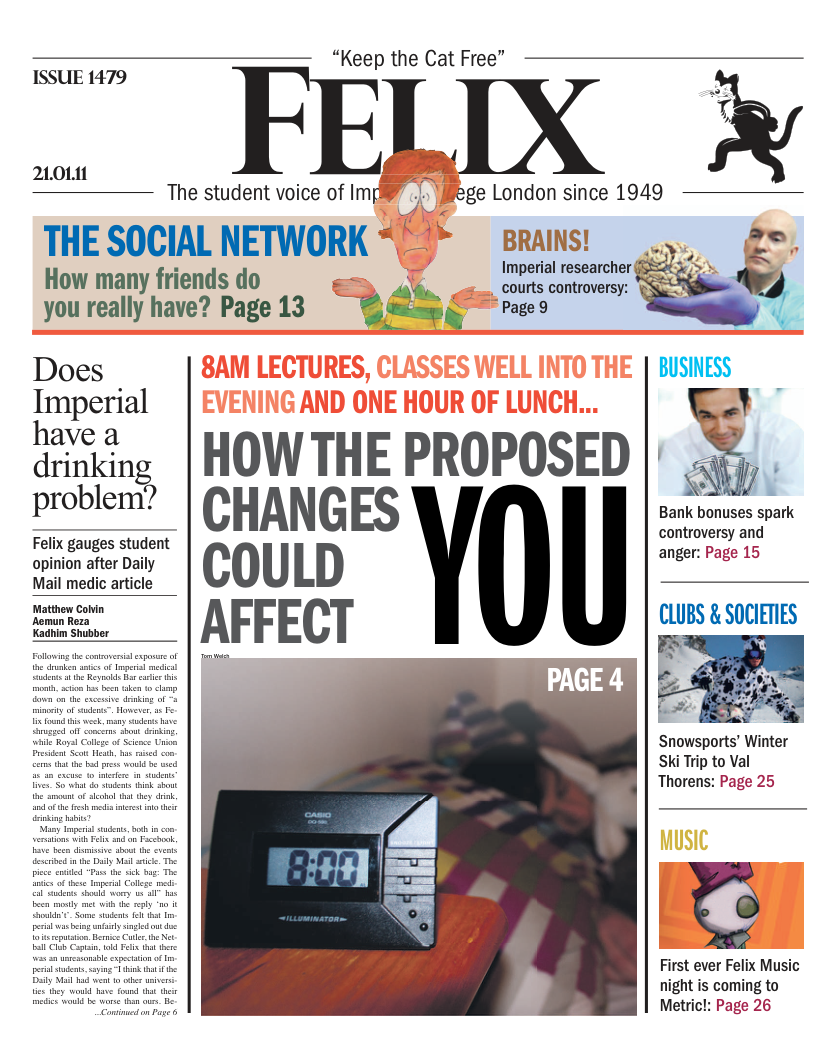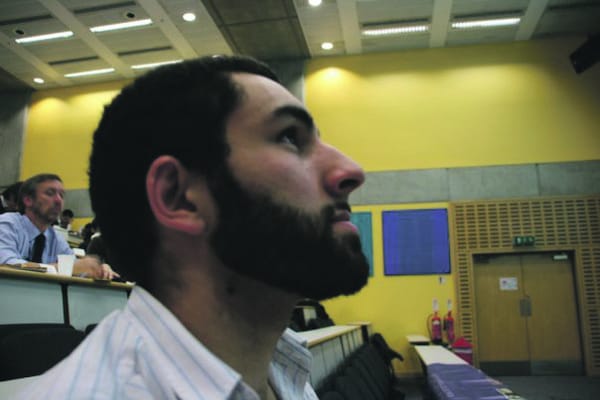8am lectures? No thanks
Extension in college working days
A College committee, the unimaginatively named working group on the extension of the College Day, is investigating a number of changes to the timetable, which, if implemented, would change Imperial for the worse. The proposals are to extend postgraduate teaching to 8pm on Mondays and Thursdays, extend undergraduate teaching to 8am-7pm on Mondays and Thursdays, reduce the lunch break to only one hour and to offer humanities options in the evenings from 6pm-8pm.
The motivation for these ideas seems simple enough. There is a finite amount of space on campus and a great deal of demand for that space. The task of timetabling the myriad classes, activities and lectures that occur on campus is extremely difficult and certainly unenviable.
It ís tempting to think that with an extra hour here or there, the immense task of juggling all of the competing demands for space would be made substantially easier. Perhaps it would, but what is clear is that such a change, however tempting it may be, would throw up a host of needless and potentially insuperable problems.
Take the idea of having 8am lectures. Most students at Imperial live 30 minutes or more from campus, which means that a conscientious student hoping to be 10 minutes early would need to wake up between 6-7am. That ís assuming that all Imperial students are so punctual. It is well known that 9am lectures are rather poorly attended when compared to those in the afternoon. This effect would only be exaggerated at 8am. And what of the lecturer? Many live much further from campus than their students. Can it actually be expected that they will leave their families at 6am, maybe 5am, to teach a lecture that will only be sparsely attended by their students?
Admittedly, this is the worst of the proposals, but the others are open to similarly unfortunate interpretations. Lectures later in the day would reduce the availability of departmental rooms for use by Clubs & Societies while those athletic students who are committed to their sports team would increasingly face the difficult choice between skipping their lectures or missing out on participating in a sport that they love.
The College must of course innovate and be unafraid to make changes where they bring about a positive outcome. Blue-sky thinking should be encouraged and the demand on space on campus is a problem that requires an imaginative solution. Admittedly, Felix does not have the magic solution. But the status quo is far preferable to the Imperial that would be created by these proposals. They are, as they stand, deeply unimaginative, unjustified, and to the detriment of both students or staff. They should be rejected.








